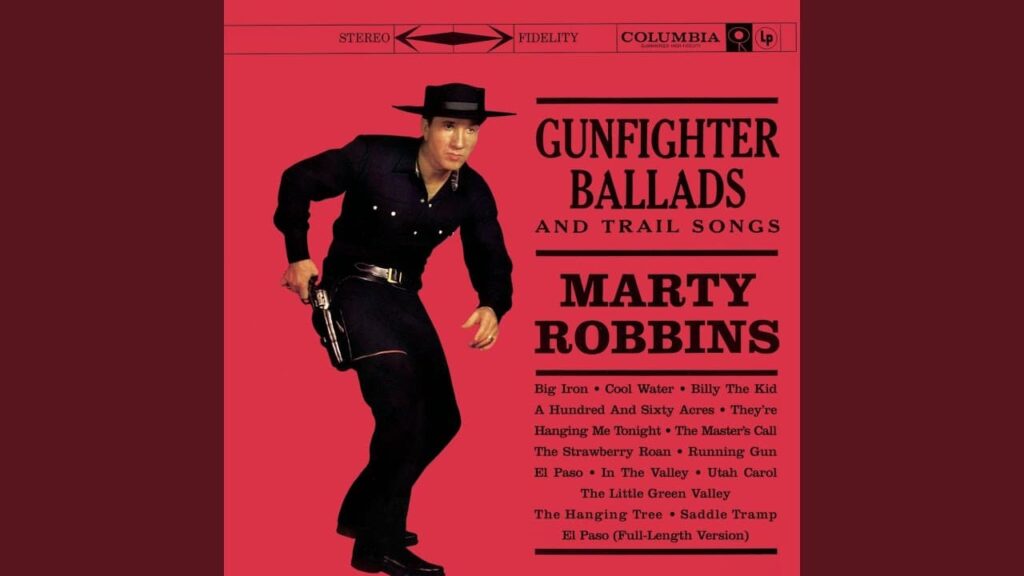
“Utah Carol”: A Cowboy’s Ultimate Sacrifice for Love and Honor
There are songs that simply play, and then there are songs that transport you, weaving a tapestry of time and emotion with every note. Marty Robbins was a master of the latter, a troubadour who painted vivid pictures of the Old West with his resonant voice and storytelling prowess. Among his most poignant narratives is “Utah Carol,” a track that, while not a standalone single hit, is an integral and beloved part of one of country music’s most iconic albums: “Gunfighter Ballads and Trail Songs.”
Released in September 1959, “Gunfighter Ballads and Trail Songs” wasn’t just an album; it was a phenomenon. It reached an impressive No. 6 on the U.S. pop albums chart and later achieved Platinum certification. While the album is perhaps most famous for the sprawling epic “El Paso,” “Utah Carol” stands as a testament to Robbins’ ability to infuse traditional Western lore with deeply felt human drama. It wasn’t a charting single in its own right, but its inclusion on such a universally acclaimed and enduring album ensured its place in the hearts of generations of listeners.
The story behind “Utah Carol” is rooted in the rich tradition of cowboy ballads, a genre that often drew from real-life events or popular folk tales, passed down through generations around campfires and on dusty trails. This particular song is listed as “Traditional,” meaning its origins are somewhat nebulous, evolving through oral tradition before being formally recorded. However, it was Marty Robbins who gave it its definitive, unforgettable voice. The narrative is a tragic tale of selfless heroism: a cowboy, Utah Carol, sacrifices his life to save the young daughter of his boss, Lenora, from a stampeding herd of cattle.
The song’s meaning is stark yet profound. It speaks to the ultimate act of love and courage, where one man lays down his life for another, particularly a child. It delves into themes of honor, loyalty, and the inherent dangers of the cowboy’s life. The tragedy is amplified by the circumstances: a simple, seemingly innocuous red blanket, placed by Utah to make Lenora’s ride more comfortable, becomes the catalyst for disaster when it spooks the herd. It’s a cruel twist of fate, highlighting how easily life and death can intertwine in the rugged, unforgiving landscape of the American West.
As Marty Robbins sings, his voice rich with emotion, you can almost see the dusty plains, feel the thundering hooves, and witness the frantic struggle. He sings of the narrator’s deep bond with Utah, a brotherly love that makes the loss even more acutely felt. The lyrics, “And now my friends you’ve asked me what makes me sad and still / And why my brow is darkened like the clouds upon the hill,”1 draw you in immediately, establishing a reflective, mournful tone. It’s a lament, a retelling of a heartbreaking memory that clearly haunts the narrator.
For those of us who grew up with these tales, “Utah Carol” is more than just a song; it’s a window into a bygone era, a reminder of values like bravery, sacrifice, and the quiet dignity of those who lived and died under the vast Western sky. It takes us back to simpler times when storytelling was a cherished art form, and a lone voice and a guitar could transport you to another world. Listening to it now, decades later, still stirs a powerful sense of nostalgia. It’s a bittersweet echo of a time when heroes rode horses, danger lurked just beyond the horizon, and the human spirit, even in the face of insurmountable odds, shone brightly. Marty Robbins didn’t just sing songs; he breathed life into legends, and “Utah Carol” remains a timeless monument to that enduring legacy.